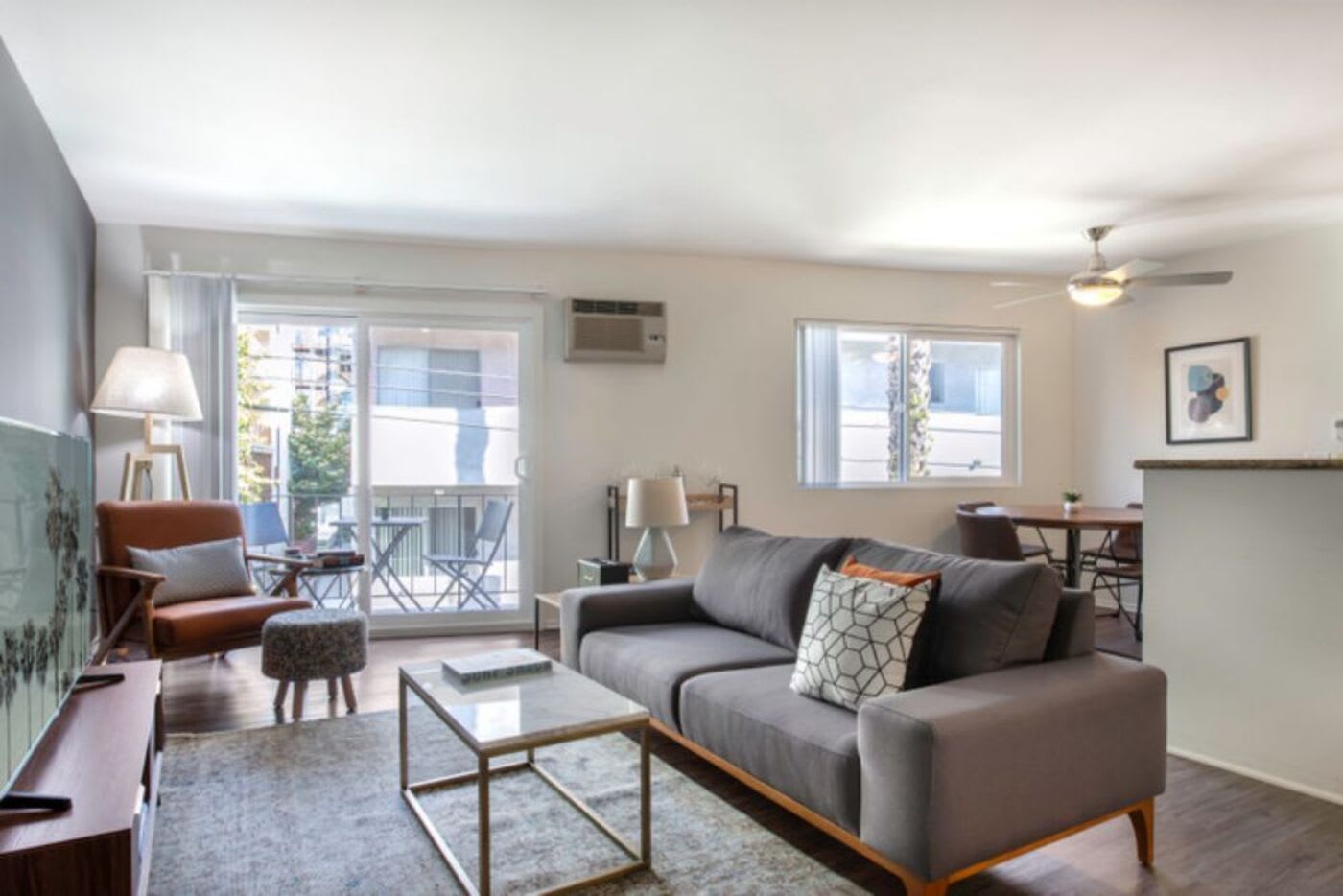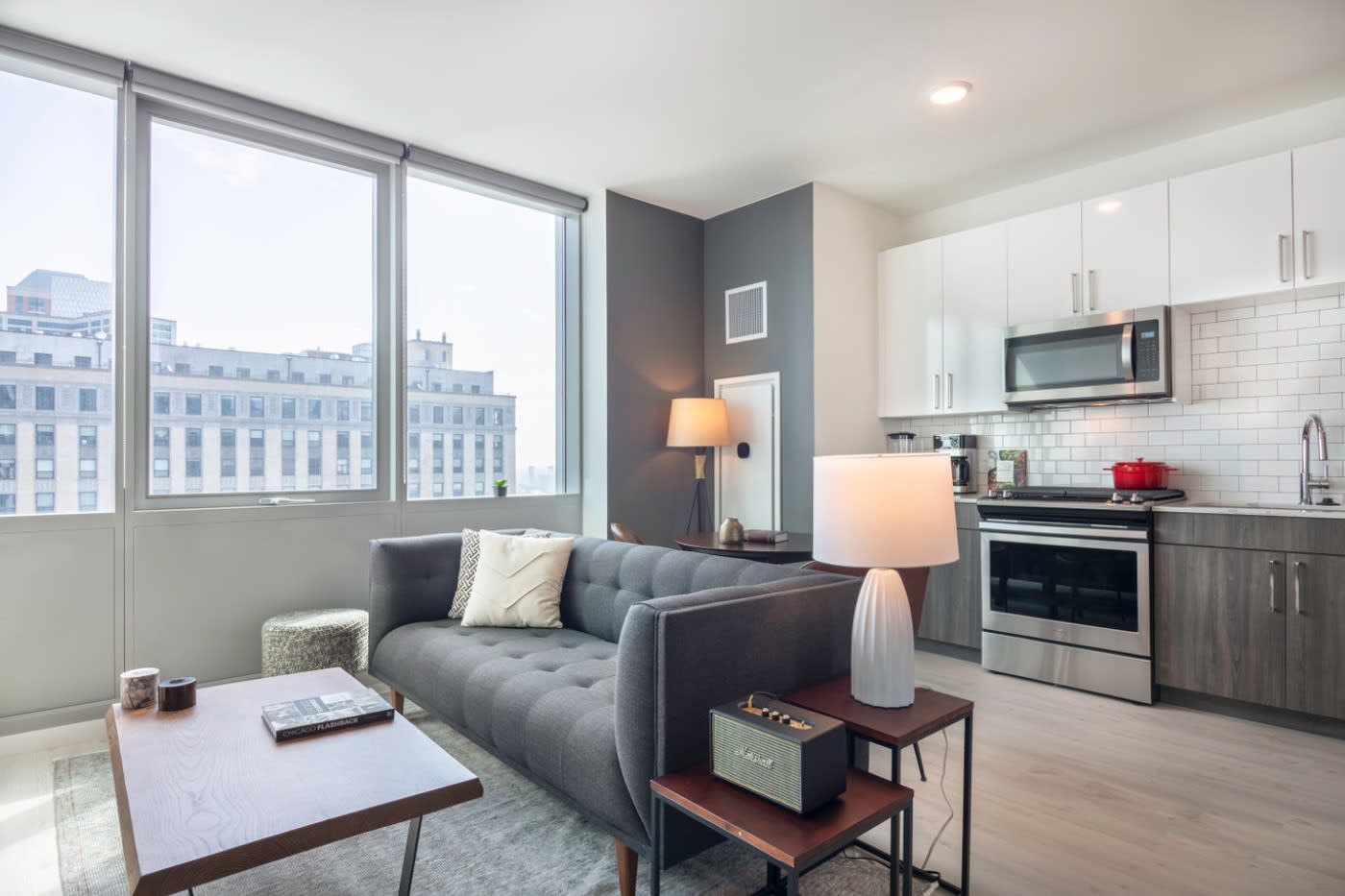Duration debate: short-term rental vs long-term rental
Dig into how the length of your stay has pros and cons.

The housing landscape has experienced a big shift in recent years. Short-term rentals have gained traction alongside traditional long-term leases. While the allure of a temporary stay has positives, there’s also a compelling case for staying longer. In this article, we’ll compare a short-term rental vs long-term rental to help determine which is right for you!
The rise in demand for short-term rentals
In the era of Airbnb and vacation rentals, short-term stays have become increasingly popular. Why? Flexibility. This kind of lease appeals to travelers and those seeking temporary housing solutions. It’s a shift that’s reshaped the rental market.
However, short-term rentals are facing a bunch of challenges lately in major cities. For instance, this kind of lease is becoming more difficult to obtain in New York City due to economic, social, and regulatory factors. One significant issue is the impact on housing affordability and availability. That’s because more short-term rental platforms add to housing shortages and drive up rental prices. It’s not a great scenario for locals, especially in competitive markets.

Additionally, concerns about neighborhood disruptions and the erosion of community cohesion arise due to the “here today, gone tomorrow” nature of short-term rentals. If enough housing is unstable, it can disrupt the fabric of residential areas. Regulatory frameworks often struggle to keep pace with the rapid growth of short-term rentals. This leads to debates over zoning regulations, taxation, and enforcement measures.
Contrary to the transient nature of short-term rentals, long-term accommodation options offer stability and a sense of belonging. These rentals cater to individuals and families looking to establish roots and enjoy the comforts of a permanent residence. Basically, long-term residents plan to stick around.
Pros of short-term living

Flexibility
When it comes to a short-term rental vs long-term rental, a shorter duration offers better flexibility, allowing travelers to explore different destinations. Whether for a weekend getaway or an extended vacation, short-term rentals provide more freedom. This lets you tailor your living situation to your specific needs and preferences.
Amenities & furnishings
Many short-term rentals come fully furnished and equipped with amenities such as kitchens, laundry facilities, and entertainment options. This convenience enhances the overall guest experience. It also provides a home-away-from-home environment with all the comforts and conveniences needed for a comfortable stay.
Unique experiences
Short-term rentals often offer unique and diverse lodging options. That may include historic homes, boutique apartments, and themed properties. These distinctive accommodations allow travelers to immerse themselves in the local culture, architecture, and lifestyle. A unique stay means more memories than you’d typically make in a traditional home.
Cons of short-term stays

Higher costs
On a per-night basis, short-term stays are usually more expensive. With nightly rates, cleaning fees, and service charges, the overall cost of short-term accommodations can add up quickly. This higher expense can strain travel budgets and limit options for wallet-conscious travelers.
Limited availability
Popular short-term rental properties may experience high demand, leading to fewer places to stay during peak travel seasons or in sought-after locations. This limited inventory can make it challenging to live exactly where you want and when you want. That’s especially true for last-minute bookings or large groups. The result? Major inconveniences and frustration.
Transient experience
Unlike long-term rentals, which offer stability and a sense of belonging, short-term stays can seem temporary. Guests may not have the opportunity to get a real feel for the local community or establish meaningful connections. This limits the depth of their travel experiences and social interactions. Why bother getting to know people if you’re only going to be there for a brief time? Plus, frequent turnover of guests can lead to a lack of continuity and a less personalized experience compared to long-term living arrangements.
Long-term rentals: The case for ‘settling in’

A short-term rental vs long-term rental is a big difference. Long-term leases offer a sense of permanence, fostering a deeper connection to the community and surroundings. You have the opportunity to personalize your living spaces and establish lasting relationships with neighbors.
Even better, with long-term furnished housing programs like Live@Blueground, you get flexibility and savings. You’ll save thousands in upfront furniture costs, enjoy rent freeze benefits when you’re away, pay lower rental rates, and have the option to switch between homes.
Choosing a long-term apartment rental over a short-term stay has numerous advantages that extend beyond mere accommodation. Let’s delve deeper into the dynamics of each option to understand why settling in pays off.
Advantages of long-term rentals

Stability & security
Long-term rentals offer tenants security by providing a fixed-term lease agreement, typically spanning months or years. This stability allows individuals and families to establish roots in a community, maintain consistent living arrangements, and plan for the future with confidence.
Cost-effectiveness
More often than not, your money goes further when you stay longer. Long-term rentals usually provide better value for money compared to short-term stays. Monthly rent payments are typically lower, and tenants may benefit from discounted rates or incentives for signing longer leases. See the Live@Blueground program as an excellent example of low, long-term housing prices. Additionally, long-term renters can avoid the additional costs associated with frequent moves. Those can be moving fees, storage expenses, and utility setup charges.
Sense of community
Want to feel like you truly belong somewhere? Stay there for a year or longer. Living in a long-term rental property fosters a sense of community. Over time, residents have the opportunity to build relationships with neighbors, participate in local events, and contribute to the vibrancy of the neighborhood. This sense of connection helps you enjoy life more. It boosts your overall well-being and satisfaction with the living environment, creating a more fulfilling and enriching experience.
Comparing the two options

Short-term vs. long-term expenses
When comparing the financial implications of a short-term rental vs long-term rental, the longer you stay, the more affordable a home typically becomes. The lower monthly costs and reduced turnover expenses play parts in that. While short-term rentals may seem economical for brief stays, they can quickly add up in the long run.
Short-term vs. long-term considerations
What else matters other than money? The lifestyle implications of each length of stay vary significantly. Short-term stays suit those who want to remain flexible or have specific travel plans, whereas long-term rentals cater to people who want to put down roots. It’s a present and near future vs present and far future mindset.
Community & market impact
The prevalence of short-term rentals can have broader implications for communities and housing markets. Concerns about housing affordability, neighborhood dynamics, and regulatory issues arise as short-term rentals reshape traditional rental landscapes. They may have positive effects right away, but short-term leases can eventually negatively impact the people in that city or neighborhood.
Why settling in pays off

Saving beyond short-term
Whether you’re a planner or not, opting for a long-term apartment rental allows you to better plan out your finances. You’ll avoid the uncertainty and potential cost fluctuations associated with short-term stays. Over time, the savings accumulated from stable rents can contribute to long-term financial goals. That’s because you see what you’re paying and more easily determine how that might change in the coming months and years.
Community connections
Neighbors can become some of the best friends you’ll ever have. But that takes time. Typically, only long-term residents have the opportunity to forge those meaningful connections. It’s an important way to add to your social support network and provide life satisfaction.
Stress reductions
Peace of mind shouldn’t be overrated. With a long-term rental, tenants can enjoy a familiar environment and have an idea of what’s coming next. The absence of constant relocation stress allows individuals and families to focus on other aspects of their lives and pursue long-term goals with confidence. In short, settling down helps you settle on your next steps.
Ready for long-term living?

In this debate between a short-term rental vs long-term rental, the advantages of settling into a permanent residence are evident. From financial stability to community connection and stress reduction, long-term apartment rentals offer unparalleled benefits.
Thinking of moving to a new city for a year or longer? Blueground offers fully furnished homes featuring amazing values and flexibility that give guests peace of mind. What’s living in a furnished apartment like? See for yourself!








